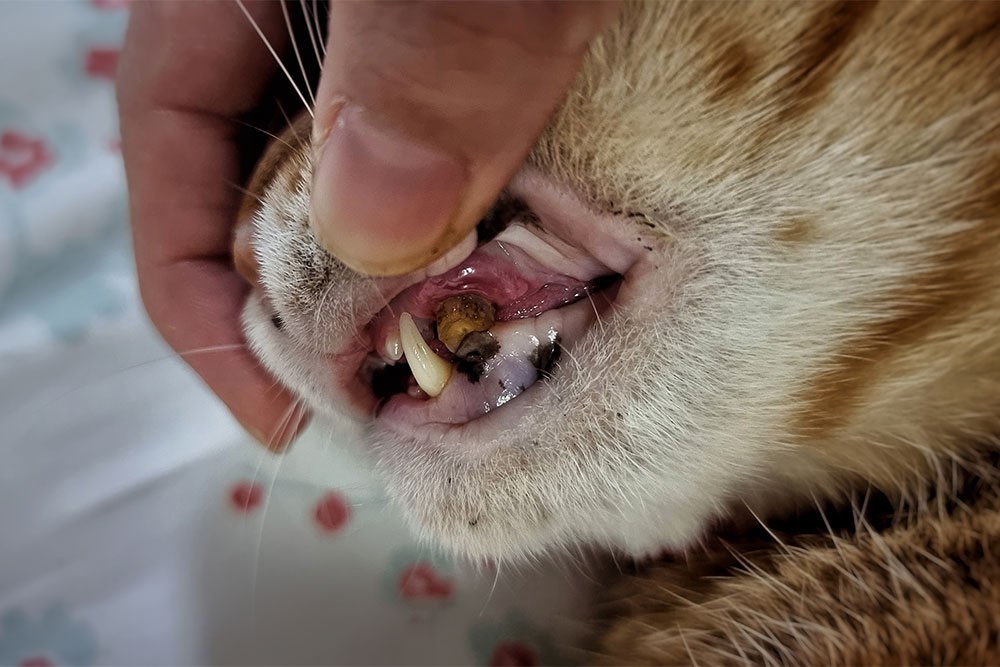Trusted Dental Tips and Products for Healthier Pets
The Importance of Pet Oral Health
Maintaining your pet’s dental health is just as important as managing their overall well-being. Studies indicate that 80% of dogs and 70% of cats show signs of dental disease by age three. Left untreated, dental disease can lead to pain, tooth loss, and systemic infections affecting the heart, liver, and kidneys.
At Valley Center Veterinary Clinic, we emphasize preventative dental care to help your pet stay healthy and comfortable. Routine check-ups, professional cleanings, and at-home dental care play a vital role in reducing the risk of serious oral health issues.
Choosing Effective Dental Chews for Dogs and Cats
Dental chews can help reduce plaque and tartar buildup, which, if left unchecked, can lead to gingivitis and periodontal disease. Plaque can harden into tartar within 24 to 72 hours, so providing safe and effective chews is an important step in dental care.
What to Look for in a Dental Chew
- VOHC-Approved Chews: The Veterinary Oral Health Council (VOHC) provides a list of tested and approved dental chews that are scientifically proven to improve oral health. View VOHC-accepted dental products for dogs and cats.
- Texture & Durability: Chews should be firm enough to scrape away plaque but not so hard that they risk breaking teeth.
- Safe Ingredients: Avoid chews with excessive artificial additives, sugar, or high-fat content, which can be harmful to your pet.
Some VOHC-approved dental chews include:
- Greenies
- Virbac C.E.T. Enzymatic Chews
- Oravet Dental Hygiene Chews
Learn more about the dangers of certain dog chews.
Brushing Your Pet’s Teeth: A Step-by-Step Guide
Brushing your pet’s teeth daily is the gold standard for preventing plaque buildup and maintaining optimal oral health.
How to Brush Your Pet’s Teeth Properly
- Choose the Right Supplies
- Use a pet-specific toothbrush with soft bristles.
- Select a pet-safe toothpaste (never use human toothpaste, as it contains fluoride, which is toxic to pets).
- Gradual Introduction
- Start by gently touching your pet’s mouth and rubbing their gums with your finger.
- Let them taste the pet-safe toothpaste to get used to it.
- Brushing Technique
- Use gentle circular motions, focusing on the outer surfaces of the teeth.
- Pay extra attention to back molars, where tartar often accumulates.
- Make it Positive
- Offer a reward, such as a dental chew or praise, after brushing to create a positive association.
Watch this step-by-step guide from Colorado State University on brushing your dog’s teeth.
Additional Dental Products for Optimal Oral Care
Aside from brushing and chews, additional veterinary-recommended dental products can enhance oral health:
- Dental Wipes – A great alternative for pets who resist brushing.
- Water Additives – Helps control bacteria growth and freshens breath.
- Oral Gels & Sprays – Can reduce bacterial buildup in between brushing sessions.
Choosing VOHC-approved products ensures that the items you use are effective in maintaining oral hygiene. Browse VOHC-approved dental products for dogs.
Preventing Tooth Fractures in Heavy Chewers
Aggressive chewing on hard bones, antlers, or hooves can crack teeth and lead to painful infections. If a tooth fracture exposes the pulp, it may require extraction or a root canal.

Safe Chewing Options
- Rubber chew toys (e.g., Kong toys)
- Nylon-based dental chews (discuss with your vet first)
- Soft rawhide alternatives (may be a choking hazard for some dogs- discuss with your vet first)
Learn about unsafe chew toys and their risks.
Common Questions About Pet Dental Care
1. How often should I replace my pet’s chew toys?
- Every few months, or sooner if they become damaged or break apart.
2. What are signs of dental disease in pets?
- Bad breath (halitosis)
- Difficulty eating or dropping food
- Red or swollen gums
- Excessive drooling or pawing at the mouth
3. What should I do in a dental emergency?
If your pet is bleeding from the mouth, has a broken tooth, or stops eating, seek immediate veterinary care.
Why Choose Valley Center Veterinary Clinic for Your Pet’s Dental Care?
At Valley Center Veterinary Clinic, we offer:
- Comprehensive dental exams & professional cleanings
- Advanced imaging (X-rays) to detect hidden dental issues
- Safe and effective treatment plans for periodontal disease
- Customized oral health recommendations
Contact us today to schedule a dental check-up!
Prioritizing Your Pet’s Dental Health
Taking proactive steps toward your pet’s dental care can prevent pain, tooth loss, and costly treatments in the future.
By combining:
- Daily brushing
- VOHC-approved dental chews
- Regular veterinary cleanings
You can ensure your pet enjoys a lifetime of good oral health.
At Valley Center Veterinary Clinic, we are committed to providing high-quality, compassionate dental care for your pet.







Leave A Comment